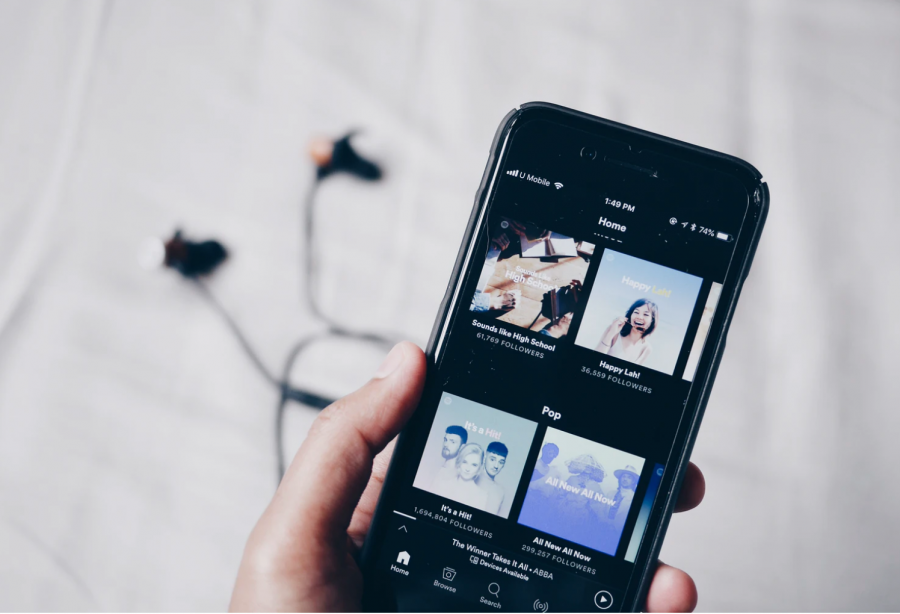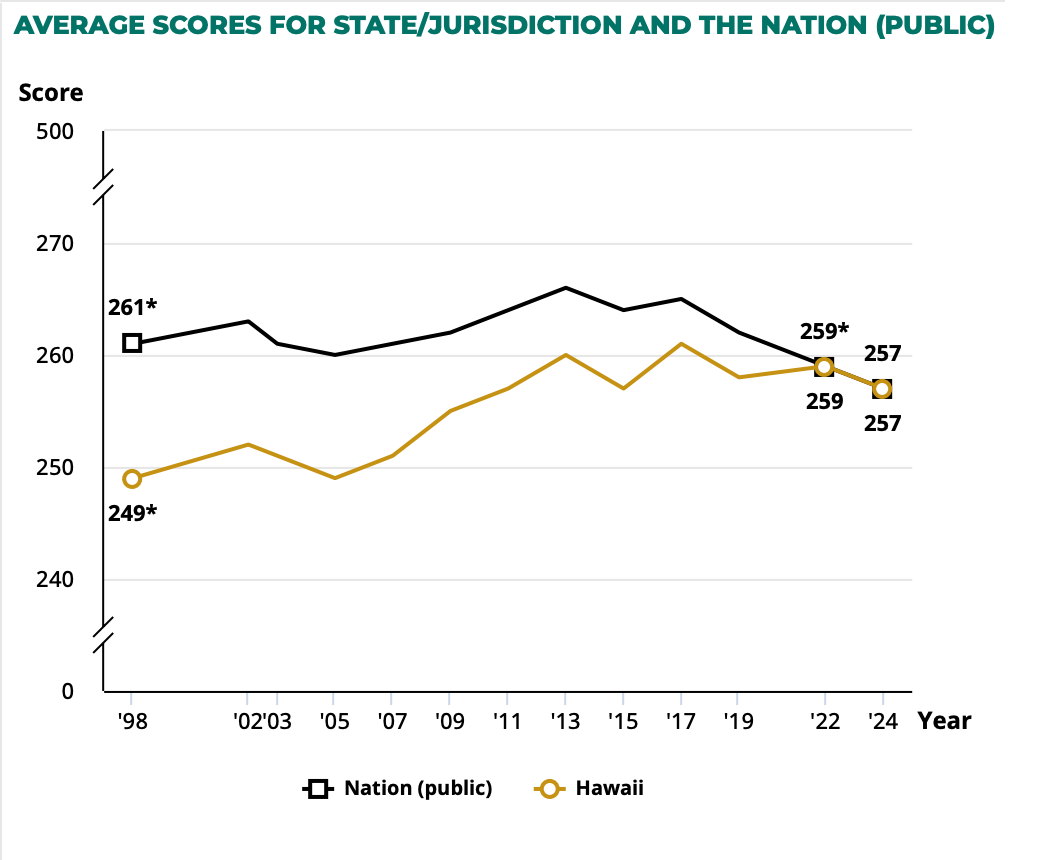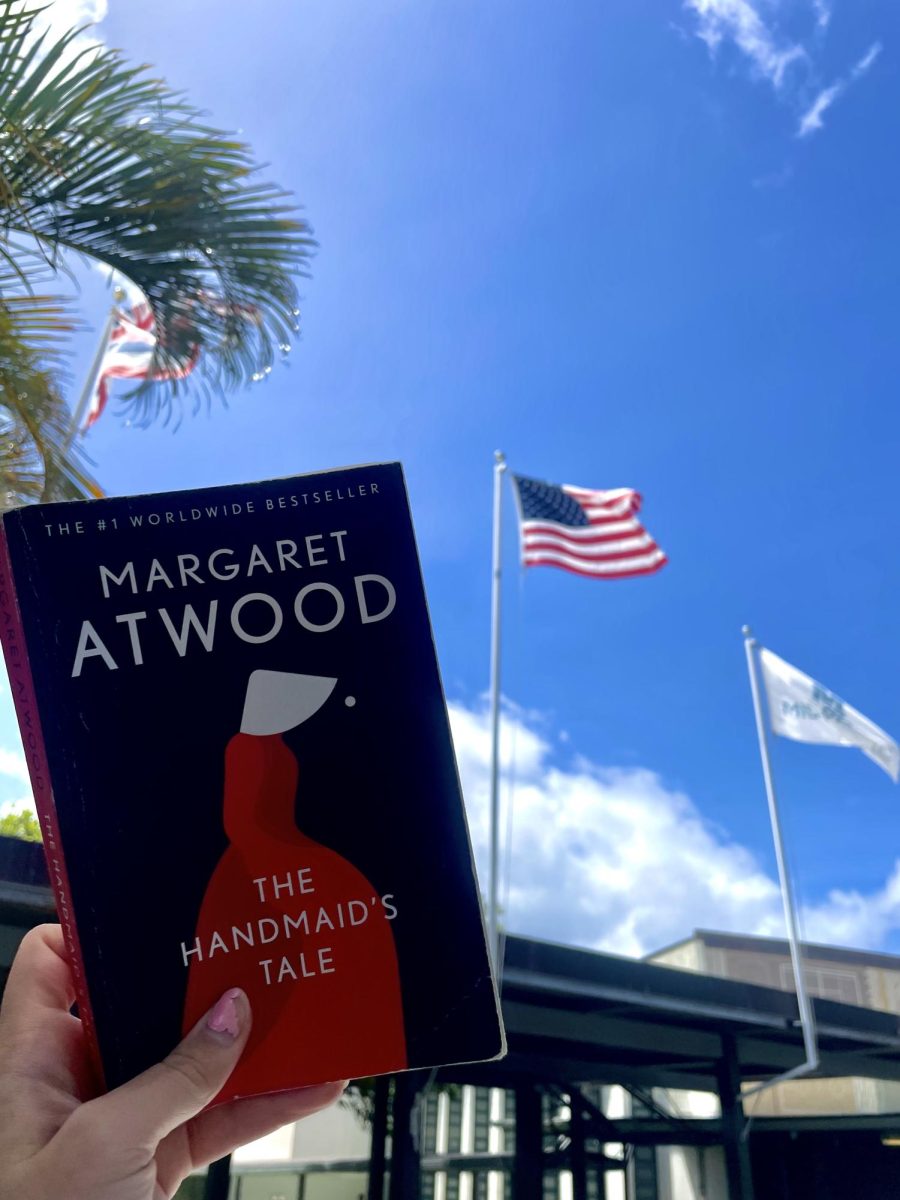Parents don’t understand the therapeutic role of music in our lives
Music is a way for us to relax and unwind.
March 10, 2021

Opinion
Picture this: You’re sitting in your room after a long day of tasks and you reach for the headphones spilling out of the backpack positioned by your desk. To wind down after a long day, you listen to a playlist or artist that you love. Then, your Mom or Dad walks in and starts demanding you begin homework and stop getting “distracted by that phone”.
We have all been in this dreadful situation one way or another. Parents, or even adults in general, don’t seem to understand the impact music may have on a teenager’s life. Spotify, Apple Music, Pandora,YouTube music and maybe even SoundCloud all bring joy into people’s lives and act as a way for people to cope. Many people don’t realize the endless benefits that come along with listening to music, and should hear the role this therapeutic activity plays in one’s life.
Senior Mason Mosca, a loyal Apple Music listener, said that listening to music has helped him through certain situations in his life. He likes to run and the grueling challenges that come along with this sport is alleviated when he gets to play his favorite tunes.
“It feels empty when I don’t have music on during my workouts because the silence is too loud,” said Mosca.
Studies have shown that listening to music while you run can actually make you run faster during a workout than if you streamed none at all. Listening to the right kind of music is important; if you were in the middle of a workout running up a never ending hill and a song that makes you want to fall asleep comes on obviously it will do you no good.
Music also has numerous health benefits. According to a study from Harvard in 2006, 60 adults with chronic pain found that music was able to reduce pain, depression, and disability. And a 2009 meta-analysis found that music-assisted relaxation can improve the quality of sleep in patients with sleep disorders. You weren’t expecting that one right? I wasn’t either. Cheerful, bright, and happy music can make people of all ages feel amazing. It has even been said to lift the mood of people that struggle with depressive illnesses.
Mental health is commonplace today, especially due to the limited human interaction because of the pandemic. In simple terms, the majority of the population feels more isolated than ever before. By putting on a song that reminds you of better times you become immersed in the rhythm. Music triggers a part of the brain that evokes emotions, most of the time being explicit memories which are the conscious, intentional recollection of factual information, previous experiences, and concepts.
The different genres of music have different purposes. If you are looking for educational music, then I have the perfect category for you: classical music. It can be defined as serious or conventional music following long-established principles rather than a folk, jazz, or popular tradition.
“Classical music is underrated in this generation, especially John Williams,” said Mosca.
If you’re unfamiliar with John Williams, he created the imperial march. I don’t need to go on and on about his greatness when it comes to his work after sharing this simple fact. We know now classical music is no “force” to be reckoned with. See what I did there?
Studying with music can be beneficial, and it activates your right and left brain. The activation of both hemispheres will maximize learning and improve memory.
You would think adults would be more understanding when it comes to listening to music. It’s the same thing as when they randomly pull up their “oldies” music and begin to blast unrecognizable songs. To them, it brings back memories of when they were a teenager. You may even hear them utter the “when I was your age” speech that we all are a little bit too familiar with.
Mosca feels that the reason why adults in general may be so against music has to do with the content as opposed to the actual activity.
“Some parents see certain types of music as inappropriate which is why they don’t want their kids to browse these platforms and stream songs promoting bad things,” said Mosca.
When you listen to music, enjoy it. If you feel like getting pumped up, pull up the playlist with songs that make you feel like you can do anything. If you want to study and get work done, classical is the way to go. Even if you want to reminisce, find oldies. Just listen to your heart.
Music should be more normalized nowadays because of the benefits it has especially with mental health. Being a teenager as we know is not easy. We try our best to enjoy the little things, and one of those is maybe blasting “Sicko Mode” by Travis Scott in our rooms after a long day. Is that so bad?







